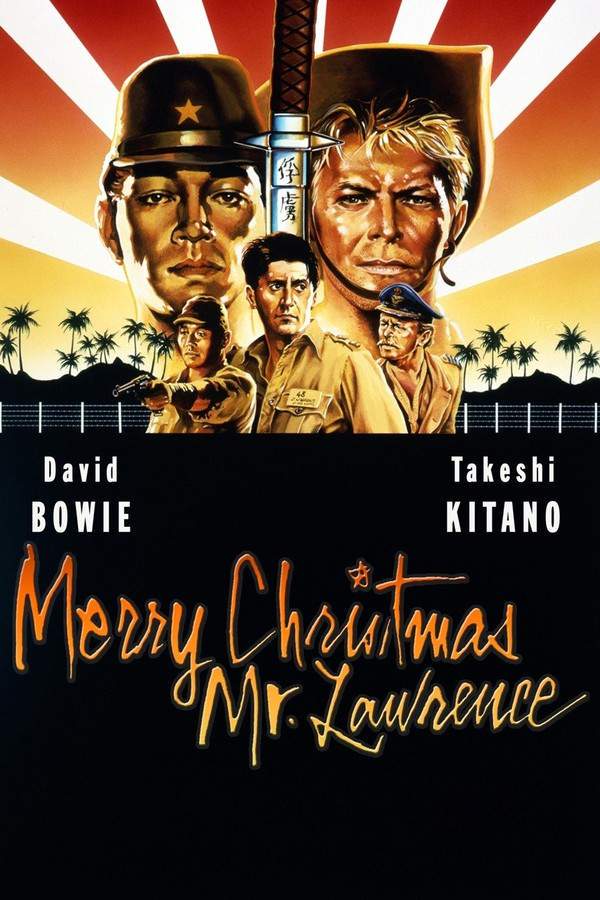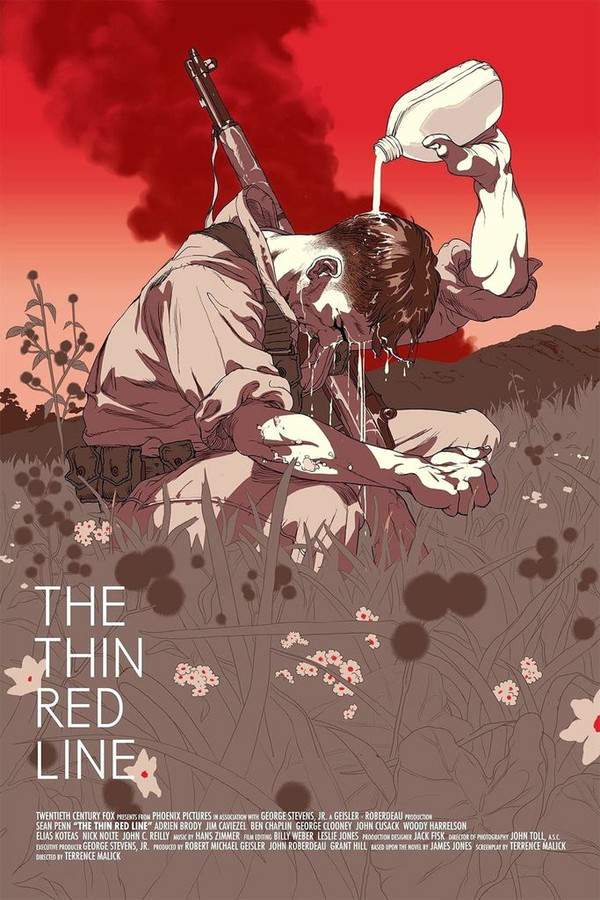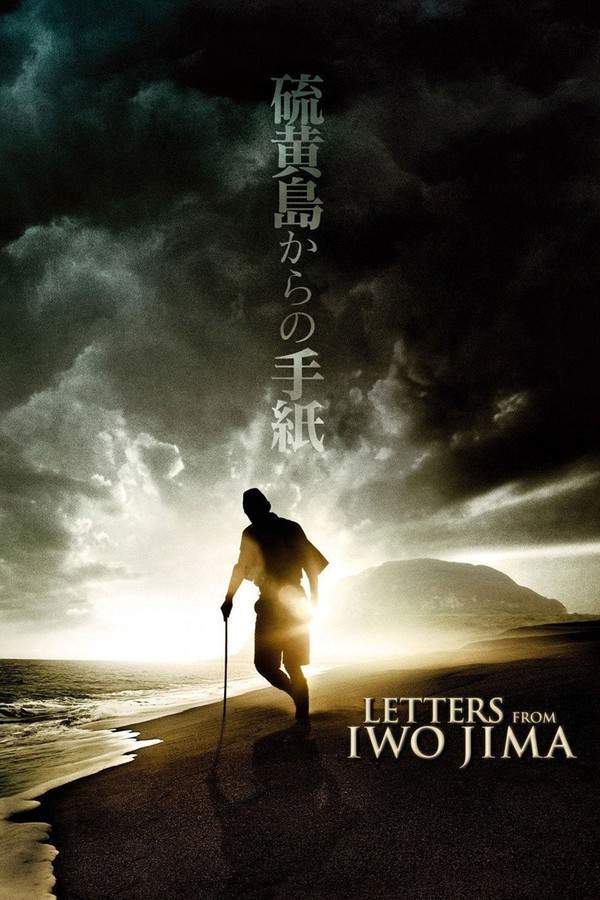
Merry Christmas Mr. Lawrence 1983
Directed by

Nagisa Ôshima
Made by

20th Century Fox Brazil
Test your knowledge of Merry Christmas Mr. Lawrence with our quiz!
Merry Christmas Mr. Lawrence Plot Summary
Read the complete plot summary and ending explained for Merry Christmas Mr. Lawrence (1983). From turning points to emotional moments, uncover what really happened and why it matters.
In the sweltering heat of 1942, Captain Yonoi ruled with an iron fist over Lebak Sembada’s POW camp, situated in Japanese-occupied Java. His unwavering commitment to the bushido code became a rigid guiding principle amidst chaos. Two prisoners emerged as fascinating anomalies within this strict discipline: Lt. Col. John Lawrence, portrayed by Tom Conti, the only captive fluent in Japanese, whose empathetic nature fostered an unexpected bond with Yonoi; and Gp. Capt. Hicksley, a staunch advocate for his fellow inmates who consistently resisted Yonoi’s attempts to seek out potential weapons experts among them.
As Lawrence maintained a delicate friendship with Sgt. Gengo Hara, portrayed by Yûya Uchida, he found himself increasingly at odds with the camp’s officers. This emotional divide would ultimately be bridged with the arrival of Major Jack Celliers, whose situation took a turn when he was summoned for a military trial regarding his perceived offenses against the Japanese army. During this trial, Yonoi became captivated by the indomitable spirit of Celliers, leading to his internment at the camp. After the trial, Yonoi, burdened by shadows from his past, confided in Lawrence, revealing deep-seated feelings of shame regarding his absence during the February 26 Incident—a haunting reminder of a perceived failure that drove his desperate need to uphold his honor.
As time progressed, Yonoi’s fascination with Celliers burgeoned into an obsession characterized by unusual displays of favoritism, such as special privileges, whispered conversations, and secretive observations. The camp was engulfed in turmoil when the inmates were punished through enforced fasting after the brutal execution of a guard named Okura, a scene steeped in horror. In an act of defiance, Celliers secretly smuggled food but was eventually caught, leading both him and Lawrence to bear the brunt of the consequences. In a moment of betrayal, Yonoi’s batman attempted to kill Celliers in his sleep, but the plot unraveled when Celliers awoke, leading to a daring escape that set Lawrence free as well.
After capturing Celliers, Yonoi delivered a chilling ultimatum: to surrender himself in a duel, granting him freedom in return. Celliers, however, remained resolute and refused. The batman, enveloped by guilt over his failure, ultimately took his own life, leaving Yonoi torn between duty and an all-consuming passion for the prisoner.
Amidst the somber atmosphere of a funeral, Lawrence faced devastating news: he and Celliers were marked for execution, a decision made to maintain the precarious order within the camp. This injustice ignited a furious rage within him, resulting in an explosive outburst as he destroyed the funeral altar before being forcibly returned to his cell. That very night, shrouded in darkness, Celliers revealed his troubled past to Lawrence, including a moment of betrayal from his youth where he did not intervene during a brutal initiation at his boarding school. The weight of their shared emotional pain bonded them in unexpected ways. Their moment of reflection was interrupted when Hara made a reckless decision, confessing to being the true culprit behind the radio incident, thereby inadvertently freeing Lawrence and Celliers. This act brought Hara to irreverently wish Lawrence a “Merry Christmas!” in English, a jibe that further exacerbated Yonoi’s frustrations.
As tensions escalated, Hicksley grew increasingly wary, sensing that Yonoi intended to replace him with Celliers as the representative of the camp. This suspicion ignited fierce arguments between them over their failure to uphold transparency. In a moment of uncontrolled anger, Yonoi demanded that the entire camp assemble outside the barracks, which led to dire consequences when a frail patient succumbed to exhaustion during the ordeal. Despite Hicksley remaining unpunished for his defiance, Yonoi’s wrath yielded immediate consequences, culminating in a shocking on-the-spot execution.
In an incredible act of courage, Celliers selflessly sacrificed his life to save Hicksley, sealing his fate with a poignant kiss bestowed upon Yonoi. Overwhelmed with conflicting emotions of valor and love for Celliers, Yonoi collapsed, engulfed by guilt. As the camp authorities intervened, they left Celliers buried up to his neck in sand, rendered helpless. In a powerful moment of sorrow, Yonoi snatched a lock of Celliers’ hair, a bittersweet token that symbolized their tumultuous connection just moments before his death.
Years later, as fate would have it, Captain Hara, now a prisoner of war, found himself face-to-face with his former enemy, Colonel Lawrence (played by Takeshi Kitano). The surroundings contrasted starkly with their previous encounters, this time in a bleak, Allied-occupied environment. Despite the differences in their circumstances, Hara had made remarkable strides in mastering English, showcasing that his time as an inmate had not dulled his astuteness. During this unexpected reunion, Lawrence grappled with the chilling reality of Hara’s imminent execution, scheduled for the following day, having been condemned for war crimes deemed horrific by the Allies.
As they exchanged thoughts, they found common ground in a moment of reflection, confronting the harsh truths that lingered between both sides, burdened by the atrocities committed in the name of war. In a poignant farewell, Hara called after Lawrence, with a mix of irony and longing in his voice, saying, > “Merry Christmas, Mr. Lawrence!” The phrase resonated deeply, encapsulating the absurdities, hardships, and painful memories that war had etched into their lives.
Merry Christmas Mr. Lawrence Timeline
Follow the complete movie timeline of Merry Christmas Mr. Lawrence (1983) with every major event in chronological order. Great for understanding complex plots and story progression.
Captain Yonoi's Rule
In 1942, Captain Yonoi took control of the POW camp in Japanese-occupied Java, governing with strict adherence to the bushido code. His harsh methods and uncompromising rules created an environment of fear and discipline among the inmates.
Arrival of Lt. Col. John Lawrence
Lt. Col. John Lawrence, fluent in Japanese, became a unique presence in the camp. His empathetic nature allowed him to form an unexpected bond with Captain Yonoi, which set the stage for complex dynamics within the camp.
Gp. Capt. Hicksley's Defiance
Gp. Capt. Hicksley emerged as a fierce advocate for the prisoners, consistently resisting Captain Yonoi's attempts to identify potential weapons experts among them. His defiance highlighted the growing tensions between the captives and their captors.
Major Jack Celliers' Trial
Major Jack Celliers was brought to the camp after a military trial for perceived offenses against the Japanese army. His arrival further complicated the relationships between the prisoners, especially as Yonoi became intrigued by Celliers' spirit.
Yonoi's Confession to Lawrence
After an intense encounter, Captain Yonoi confided in Lt. Col. Lawrence about his feelings of shame regarding his past failures during the February 26 Incident. This sharing deepened the emotional complexity between them.
The Execution of Guard Okura
The camp faced upheaval when a brutal execution of a guard named Okura led to severe punishment of the inmates. This chilling event illustrated the severe consequences of defiance against Yonoi's regime.
Celliers' Act of Defiance
In a bold move, Celliers smuggled food into the camp but was caught subsequently, facing dire consequences alongside Lawrence. This act of rebellion reflected the desperate measures inmates were willing to take to survive.
The Batman's Betrayal
In a shocking turn of events, Yonoi's batman attempted to assassinate Celliers in his sleep. However, the plot failed when Celliers awoke, leading to a brazen escape which ultimately freed Lawrence as well.
Celliers Faces an Ultimatum
After recapturing Celliers, Captain Yonoi issued a dramatic ultimatum: to submit to a duel that could grant him his freedom. Celliers, however, maintained his defiance, refusing to concede.
Lawrence's Outburst
During a somber funeral, Lawrence received devastating news of his and Celliers' impending executions. In a fit of rage fueled by injustice, he destroyed the funeral altar, expressing his fury at the oppressive regime.
Hara's Reckless Confession
Sgt. Gengo Hara recklessly admitted to being responsible for a radio incident, inadvertently freeing Lawrence and Celliers. His unexpected confession served to further complicate the power dynamics within the camp.
The Fatal Assembly
As tensions reached a boiling point, Yonoi called for the entire camp to assemble outside, resulting in tragic consequences. The strain proved too much for a frail inmate, who ultimately succumbed to exhaustion during the ordeal.
Celliers' Sacrifice
In a selfless act, Celliers sacrificed his life to save Hicksley, sealing his fate with an emotional kiss to Yonoi. This moment showcased the intense and conflicting feelings that had developed amidst the violence.
Lawrence and Hara's Reunion
Years later, Colonel Lawrence encountered Captain Hara, now a prisoner himself, in an Allied-occupied environment. Their exchange highlighted the enduring impact of their shared past and the harsh realities of war.
A Bittersweet Farewell
As they parted ways, Hara wished Lawrence a 'Merry Christmas,' a phrase laden with irony and memories of their tumultuous history. This farewell encapsulated the painful absurdities and the lingering shadows of their wartime experiences.
Merry Christmas Mr. Lawrence Characters
Explore all characters from Merry Christmas Mr. Lawrence (1983). Get detailed profiles with their roles, arcs, and key relationships explained.
Lt. Col. John Lawrence
John Lawrence is depicted as a compassionate and empathetic officer, who uses his fluency in Japanese to navigate relationships within the POW camp. His ability to communicate fosters unexpected connections, particularly with Captain Yonoi. Lawrence's moral dilemmas highlight the contrast between his values and the harsh realities of war.
Captain Yonoi
Captain Yonoi embodies the rigidity of the bushido code, struggling to balance his duties as a commander with his personal feelings. His obsession with Celliers showcases the internal conflict between cultural ideals of honor and his emotional turmoil. Yonoi's eventual guilt and vulnerability enhance his complexity as a character.
Gp. Capt. Hicksley
Gp. Capt. Hicksley represents resilience and defiance among the POWs, consistently challenging Yonoi's authority. His protective nature towards his fellow inmates underscores the importance of leadership within the camp. However, his growing mistrust of Yonoi leads to increased tensions, reflecting the precarious nature of their existence.
Sgt. Gengo Hara
Sgt. Gengo Hara serves as a link between the POWs and their captors, exemplifying the complex dynamics of loyalty and survival. His crucial confession ultimately alters the fates of Lawrence and Celliers. Hara's development from a soldier to a nuanced character signifies the transformative impact of war experiences.
Major Jack Celliers
Major Jack Celliers is characterized by his rebellious spirit and defiance against oppressive authority. His bond with Lawrence highlights themes of sacrifice and love, culminating in a heroic act that costs him his life. Celliers' journey reflects the struggles of maintaining one's identity in an environment designed to break spirits.
Merry Christmas Mr. Lawrence Settings
Learn where and when Merry Christmas Mr. Lawrence (1983) takes place. Explore the film’s settings, era, and how they shape the narrative.
Time period
1942
The year 1942 was marked by significant events in World War II, including territorial expansions and fierce battles. In the context of the film, this time period illustrates the harsh realities faced by prisoners of war under Japanese occupation. It highlights themes of honor, loyalty, and the profound impacts of war on human relationships.
Location
Lebak Sembada, Java
Lebak Sembada serves as the backdrop for the harrowing experiences of POWs during World War II. This camp, located in Java, represents the strict adherence to military codes and the brutal realities of war. Known for its oppressive atmosphere, the camp becomes a site of emotional turmoil and psychological struggle for both captors and captives.
Merry Christmas Mr. Lawrence Themes
Discover the main themes in Merry Christmas Mr. Lawrence (1983). Analyze the deeper meanings, emotional layers, and social commentary behind the film.
⚔️
Honor and Betrayal
The film delves into the complex interplay between honor and betrayal within the POW camp setting. Characters wrestle with their duties, personal codes of conduct, and the consequences of their actions amidst the chaos of war. The theme highlights how honor can sometimes lead to betrayal, creating moral dilemmas for the characters involved.
💔
Sacrifice and Love
Sacrifice is a poignant theme, epitomized by characters who give everything for their comrades. The emotional bonds formed in the camp illustrate the depths of human connection in dire circumstances. Love, whether romantic or platonic, drives characters to acts of bravery and selflessness, ultimately leading to tragic outcomes.
💭
Remorse and Reflection
The theme of remorse resonates throughout the storyline, especially as characters confront their past actions and the weight of their decisions. Reflection on their roles in the war leads to moments of profound understanding and shared pain, underscoring the challenges of reconciling personal history with the broader context of conflict.

Coming soon on iOS and Android
The Plot Explained Mobile App
From blockbusters to hidden gems — dive into movie stories anytime, anywhere. Save your favorites, discover plots faster, and never miss a twist again.
Sign up to be the first to know when we launch. Your email stays private — always.
Merry Christmas Mr. Lawrence Spoiler-Free Summary
Discover the spoiler-free summary of Merry Christmas Mr. Lawrence (1983). Get a concise overview without any spoilers.
In the sweltering heat of 1942 Java, a remote Japanese‑run prisoner‑of‑war camp becomes a crucible where honor, duty, and humanity collide. The camp’s rigid hierarchy is enforced by the uncompromising Captain Yonoi, whose adherence to the bushido code shapes every interaction. Against this backdrop, a small group of Allied officers find themselves caught between survival and conscience, their fates intertwined with the very culture that seeks to dominate them. The atmosphere is dense with oppressive heat, echoing corridors, and a lingering sense of isolation that amplifies every whispered exchange.
Into this tightly wound world arrives Jack Celliers, a British officer whose confidence and unyielding spirit immediately set him at odds with Yonoi’s disciplined order. Beside him, Lieutenant Colonel John Lawrence—the only prisoner fluent in Japanese—acts as a reluctant bridge, his empathy allowing moments of fragile understanding to surface. Their counterpart on the Japanese side, Sergeant Hara, brings a practical, more humane perspective, often mediating the stark contrast between Yonoi’s strictness and the prisoners’ yearning for dignity. The ensemble is further rounded by Captain Hicksley, whose stubborn advocacy for his comrades adds another layer of tension to the already charged environment.
The film unfolds with a measured, almost meditative pace, blending stark visual compositions of sun‑baked barracks with a haunting score that underscores the cultural chasm and shared yearning for connection. Dialogue crackles with subtext, each conversation a delicate dance of respect, resentment, and curiosity. As the characters navigate their intersecting roles—captor and captive, authority and resistance—the mood oscillates between quiet introspection and simmering unease, hinting at deeper conflicts without revealing their outcomes. In this suspended moment, the audience is left to ponder how far the bonds of honor and compassion can stretch amid the relentless machinery of war.
Can’t find your movie? Request a summary here.
Movies with Similar Twists and Themes
Uncover films that echo the narrative beats, emotional arcs, or dramatic twists of the one you're exploring. These recommendations are handpicked based on story depth, thematic resonance, and spoiler-worthy moments — perfect for fans who crave more of the same intrigue.
Featured on this page

What's After the Movie?
Not sure whether to stay after the credits? Find out!
Explore Our Movie Platform
New Movie Releases (2026)
Famous Movie Actors
Top Film Production Studios
Movie Plot Summaries & Endings
Major Movie Awards & Winners
Best Concert Films & Music Documentaries
Movie Collections and Curated Lists
© 2026 What's After the Movie. All rights reserved.













